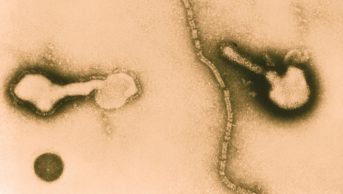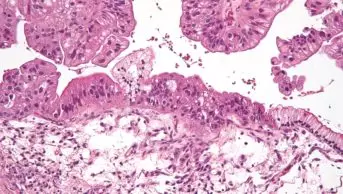
Shutterstock.com
Anti-cytokine drugs typically prescribed to treat inflammatory conditions, such as rheumatoid arthritis and psoriasis, can also improve symptoms of depression, according to new research.
Researchers analysed data from 20 clinical trials involving the use of anti-cytokine drugs to treat autoimmune disease, where depressive symptoms were measured as a secondary outcome. They found that depressive symptoms improved in patients, regardless of any improvement in physical symptoms.
“The results provide important clues regarding the role of inflammatory cytokines in depression and the potential for cytokine modulators as treatments for depression,” the authors say. “Anti-cytokine drugs seem to offer treatment effects in the range of small-to-moderate effect sizes, which is comparable to estimates observed for common antidepressants.”
The researchers, led by Golam Khandaker, a clinical lecturer and researcher at the department of psychiatry at the University of Cambridge, based their conclusions on the results of a systematic review and meta-analysis of trials involving the use of anti-cytokine drugs including adalimumab, etanercept, infliximab and tocilizumab.
The analysis involved 5,063 patients across seven randomised controlled trials (RCTs) comparing anti-cytokine drugs and placebo; three RCTs where anti-cytokine therapy was given as an add-on treatment; and ten other studies that were either non-randomised or were not placebo-controlled.
The results of the seven RCTs revealed a significant antidepressant effect of anti-cytokine treatment compared with placebo (standardised mean difference [SMD] 0.40, 95% confidence interval [CI] 0.22–0.59).
In two other RCTs where anti-cytokine drugs were given as an add-on treatment and in eight of the other studies, the researchers found small-to-medium effect estimates favouring anti-cytokine therapy (SMD 0.19, 95% CI 0.00–0.37 and 0.51, 95% CI 0.34–0.67, respectively).
Reporting their findings in Molecular Psychiatry
[1]
(online, 18 October 2016), the researchers point out that treatment with adalimumab, etanercept, infliximab and tocilizumab all resulted in improvements in depressive symptoms. They also found that the antidepressant effect was associated with baseline symptom severity but not with improvement in primary physical illness, sex, age or the length of the study.
However, Peter Jones, head of the psychiatry department at the University of Cambridge, says: “It’s too early to say whether these anti-cytokine drugs can be used in clinical practice for depression. We will need clinical trials to test how effective they are in patients who do not have the chronic conditions for which the drugs have been developed, such as rheumatoid arthritis or Crohn’s disease.
“On top of this, some existing drugs can have potentially serious side effects, which would need to be addressed,” he adds.
Michael Benros, a senior research fellow at Copenhagen University Hospital in Denmark, was involved in earlier research that identified a potential link between anti-inflammatory drugs and a reduction in depressive symptoms. “The findings do not surprise me at all,” he says. “It is a very interesting study on a very timely question: whether the immune system seems to be involved in depression, which a growing body of evidence seems to indicate.”
Benros describes the research as “very significant” because the researchers “clearly display the potential antidepressive effect of anti-inflammatory treatment, particularly in individuals with an inflammatory component to their depressive symptoms”.
Benros says the next step for researchers working in this area is to disentangle which patients with depression would benefit the most from anti-inflammatory treatment and to identify biomarkers on which to base treatment choice. “That would be a huge advance in the treatment.”
He adds: “I’m confident that immune targeted treatment will play a significant role in the future treatment of depression and other mental disorders.”
Ailsa Bosworth, chief executive officer of patient support charity the National Rheumatoid Arthritis Society, says the fact that depressive symptoms improved regardless of any improvement in physical symptoms was “surprising, interesting and important”.
“Depression is often one of the common co-morbidities in rheumatoid arthritis,” she says, adding that there are “an awful lot of drug advancements which are serendipitous”.
References
[1] Kappelmann N, Lewis G, Dantzer R et al. Antidepressant activity of anti-cytokine treatment: a systematic review and meta-analysis of clinical trials of chronic inflammatory conditions. Molecular Psychiatry 2016 doi: 10.1038/mp.2016.167


